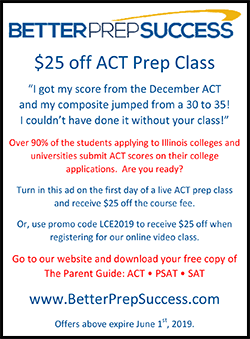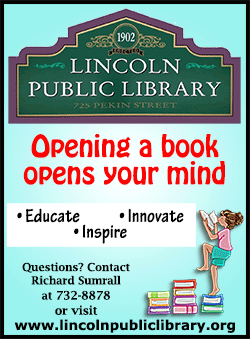|
 One organization that can assist students in
finding funding is the Logan County Education Coalition One organization that can assist students in
finding funding is the Logan County Education Coalition
.
Katy Reynolds is Executive Director of the Logan County Education
Coalition. The Woods Foundation funds their mission to assist Logan
County students and families in funding their post-secondary goals,
mostly through doing the FAFSA and scholarship applications.
Reynolds provided several answers to questions about the program
What do you do in this program?
Reynolds: Our program services vary, but generally fall under the
umbrella of finding and paying for a post-secondary education. We
can assist with selecting and signing up for a program, whether that
be an apprenticeship, two-or-four-year program, vocational school,
or continuing education courses. Our main objective is to assist
students in finding the funding for the program of their choice, and
we do that by assisting with FAFSA and scholarship applications.
What kind of assistance can you provide for students?
Reynolds: Our program does not currently offer any financial
assistance to students, but we are working on a scholarship to open
August 2019 and be available for students in spring or fall 2020.

As far as services, we assist with the scholarship search and
application process, career exploration and major selection, college
search and the applications process, and programs on early
awareness.
LCEC presently provides workshops on the following topics:
All About Scholarships, Career Connections, College Application
Process, College Knowledge Jeopardy, Steps to the FAFSA, FAFSA
completion, FAFSA follow-up, Financial Aid 101, Financial Aid Award
Letter Comparison, Two Scholarships and a Lie, Foundation to
Fruition: Guiding your Student to Success, FSA ID: What and Why, My
Postsecondary Resume, Skills and Interest Surveys, Welcome to
College and Welcome to High School.
How do you assist with FAFSA and scholarship applications?
Reynolds: Each family has a different situation and different needs,
but generally I assist the family with the FAFSA applications,
whereas I work mostly one-to-one with students and scholarship
applications. Both processes can be confusing, extensive, and
frustrating.
The FAFSA requires each student and one parent/guardian (for
students under age 24) to have a Federal Student Aid (FSA) ID. The
process of receiving the FSA can be confusing and frustrating, but
it’s the first step you must take before you can even begin filing a
FAFSA form.
Generally, I’m just over the shoulder of the student or parent
filling out the form. I don’t type the information for them but am
there to answer questions. We usually stay in contact after filing
the form. Financial aid offices do a verifications process and you
may be selected to send in information again even if you’ve done
nothing wrong.
With scholarship forms, even more work is required of students. I
can connect them to resources but cannot write the essay or submit
the form on time for them. My main role besides connecting them to
the resource is encouraging them to complete the forms.

Who is served by the program?
Reynolds: Students of any age that live in Logan County are eligible
to use our services at no fee.
Why is the program needed?
Reynolds: The process of finding a program and applying for it is
daunting and that is not even considering the financial aspect of
it. Some become overwhelmed when the financial aid process is added
to the college selection and application process, which can turn
into a roadblock.
Students need this assistance we give because they need people to
guide them through this important time in their future. School
counselors have many other responsibilities aside from the college
process so having assistance in any area is usually welcomed.
What is most important for students considering college to know?
Reynolds: It is important to consider your interest as well as keep
an open mind. Never rule out a school based on the cost. The
“sticker price” is what is shown on the website for their materials
etc… This price is for students receiving no assistance. It is
important to apply to each school and program you’re interested in
and receive a financial aid award letter before making a decision.
Never rule out a school based on high or low costs. You never know
what program is best for you until you find it.
What is the outcome of the program?
Reynolds: Since our inception in October 2017, we have assisted
students and families in receiving more than $240,000 in grants and
scholarship funds.
[to top of second column] |

When should people begin the college planning
process?
Reynolds: As soon as possible. It is never too early to consider
your options for the future.
As a senior in high school, it is important to begin the process
early in the school year or over the summer if you hadn’t before
then. You’ll need to begin researching programs, find and apply for
a program, sign up for classes and housing and make your down
payment among other things. You may think it’s far away, but the end
of the year will be here before you know it.
As an adult student, begin the process when you’re ready. Be sure
that you’re able to make the program work with your situation;
you’ll have to consider your work and family schedules as well as
your ability to get to and from class and have time to complete
homework assignments.
Is there a timeline of what should be done when?
Reynolds: Throughout your education, you should be challenging
yourself by taking a variety of courses and exploring your interests
inside and outside the classroom. Help save for college by getting a
part-time job and save when possible as every penny helps.
Explore interests through volunteer or extracurricular activities
and be sure to keep a record of activities.
Consider Advanced Placement or Dual Credit courses to get ahead on
college credits.
Junior year and summer before senior year: attend college fairs and
make college visits. Begin applying for scholarships and
investigating other ways to decrease the costs of your education.
Beginning of senior year: fill out college applications and be sure
to apply for a variety of schools and programs to keep options open.
FAFSA forms come out October 1st each year and are the most
important financial aid form for aid from federal and state
governments, schools and scholarship committees use the information
provided on the FAFSA to award need based funds.
Continue adding college fairs and visits and applying for
scholarships.

By December of senior year, you should have your FAFSA form filed
and have hopefully applied for schools and programs. If you begin
the process in the fall, you should have received a decision from
the admission office(s.)
Once admitted, you can begin the many other tasks before you become
a student such as applying for housing, meal, and roommate
preferences.
Revisit the school and sit in on a class or take a tour.
Sign up for classes and freshman orientation.
Make a down payment to be sure you’re in good standing with the
financial aid office and set up payment plans if needed.
By May, your “incoming freshman checklist” should be complete and
you should be ready to head to orientation in August and become a
student at your new school.
Though figuring out how to pay for college and other programs can be
challenging, Reynolds and the Logan County Education Coalition can
help ease the process.

|
Read all the articles in our
new
2019 Education Magazine
Title
CLICK ON TITLES TO GO TO PAGES |
Page |
|
Lessons
for all - How to be good people |
4 |
| LJHS
new Eaton STEM Lab sparks learning |
9 |
|
Hands-n learning in LJHS STEM lab |
11 |
|
Cheerleading encourages discipline and high
academic standards |
16 |
|
Outstanding educators produce students who
succeed at life |
19 |
|
Current status report for West Lincoln Broadwell
School |
23 |
|
Tutoring can minimize anxiety and result in
stronger grades |
24 |
| ACT or
SAT: What is a college bound high school
student to do? |
28 |
| Logan
County Education Coalition assists in finding
post secondary education opportunities and funds |
31 |
|
Lincoln Colleges moves forward by looking to its
past |
35 |
|
|